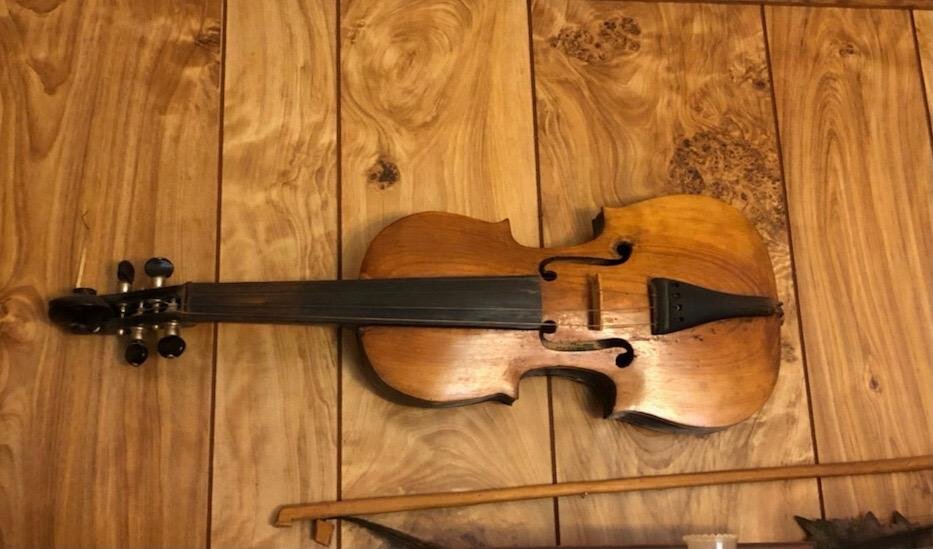Whittled Creations
/I sat down last week to blog on that age-old pass-time of whittling, but I found myself on the evils of idleness as inspired by the Case Knife advertisement. Let’s try it again this week.
While my grandpa always said he was making a little stick out of a big one, lots of whittlers can create beautiful and intricate designs. I wanted to share with you the wooden pliers my childhood neighbor, John Bertram created. He spent hours working on these little devices that moving, working parts. I talked with his granddaughter who remembered him sitting with knife in hand both morning and evening working on the bits of wood. He used a single knife and made them in stages – he created a few other designs, but the pliers were his favorite thing to make. His wife passed away several years before he did and he spent even more time whittling in those later years.
Mr. Bertram was also a musician and made at least 2 fiddles. This one remains unfinished as he was dissatisfied with the sound it produced and disassembled it to made adjustments to the wood’s thickness but never completed the work.
His father had been a wood worker and Mr. Bertram handed the gift down to his own son who continues the craft.
Another local wood-worker was Royal Hood. His life began in the timber-community of Hood Town near Grimsley, Tennessee. Perhaps it was those early years in timber, or maybe wood-working went back more generations, but Mr. Hood’s father, Lawrence Hood, was a gifted carpenter and craftsman. Royal continued the family tradition, making elaborately carved walking sticks out of reclaimed redwood. He decorated the sticks with images of the Tennessee wildflowers he enjoyed growing.
His father had been a wood worker and Mr. Bertram handed the gift down to his own son who continues the craft.
Just like Mr. Bertram, Mr. Hood’s son has an unfinished walking stick. Leaving these works-in-progress is testimony to the lifelong passion these gentlemen had for their craft; they continued it until they were simply unable to remove one more sliver of wood.
Do you have whittled creations from your family, or maybe even something you have created. I would love to see them. If you are unable to save them in the comments below, please visit me on Facebook at: @AuthorBethDurham (there’s a handy link on the right-hand side of this page).









